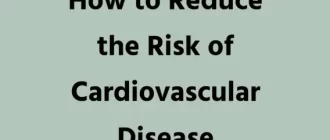America has long been obsessed with weight loss. From diet pills in the ’80s to juice cleanses in the 2000s, the trends have evolved but the underlying goal remains: shed those pounds. In 2024, weight loss is as much about the social media buzz as it is about health. Let’s unravel some of the latest fads, looking at their promises, pitfalls, and real-world impact through statistics, expert opinions, and recent research.
The Numbers Game: Weight Loss by the Stats
Before diving into the latest fads, let’s take a look at some telling numbers:
- 42% of adults in the United States are classified as obese, according to a recent report by the CDC.
- 50% of Americans admit to actively trying to lose weight at any given moment, based on a 2023 survey by Statista.
- The weight loss industry is estimated to be worth $72 billion, with diet programs and meal replacements taking up a major share.
Despite this enormous effort and expense, sustainable weight loss remains elusive for many. Why? Often, it comes down to the type of diet people choose and the unrealistic expectations set by fads. Let’s explore a few of the hottest weight loss trends that are making waves in 2024.
The Latest Fad Diets: What You Need to Know
1. The Ketovore Diet: The Ultimate Low-Carb Craze
The Ketovore Diet is a blend of ketogenic principles with a heavy emphasis on animal-based foods—essentially, keto with a carnivore twist. This diet aims to eliminate most carbohydrates while promoting fats and proteins as the primary energy sources. Proponents argue that it offers faster weight loss results and reduces cravings.
Statistics & Insights:
- According to a 2023 study published in Nutrients, individuals on the Ketovore Diet reported losing 8-12 pounds in the first month.
- However, a 2024 survey by Healthline showed that 40% of participants found the diet unsustainable beyond the third month due to its extreme restrictions.
What Doctors Say:
Dr. Lisa Morgan, a nutritionist based in Los Angeles, warns that while cutting out carbs can lead to rapid weight loss, “the long-term cardiovascular impacts of consuming such a high-fat diet are not fully understood, and the exclusion of plant-based nutrients is a major downside.”
2. The Dopamine Diet: The Feel-Good Approach
Inspired by the desire to “hack” brain chemistry, the Dopamine Diet focuses on foods that stimulate dopamine production. This means high-protein meals that include eggs, lean meat, and dairy, along with foods like almonds and dark chocolate. The idea is simple: by boosting dopamine, you improve your mood and theoretically decrease the tendency to overeat.
Does It Work?
- A 2022 meta-analysis of similar “happiness diets” found that 65% of participants reported increased motivation to exercise and improved adherence to meal planning when mood-boosting foods were included.
- However, the impact on actual weight loss was mixed, with only a 2-3% reduction in body weight over a 6-month period.
Expert Opinion:
Dr. Mark Patel, a clinical psychologist, points out, “The Dopamine Diet may help you stay positive about your goals, but unless there is a clear calorie deficit, significant weight loss is unlikely. The danger is in relying solely on feel-good foods rather than focusing on balanced nutrition.”
3. Intermittent Fasting 20/4: The Extremist Approach
Intermittent Fasting (IF) is not new, but the 20/4 version—fasting for 20 hours and eating all your calories within a 4-hour window—is gaining popularity for its promise of accelerated fat burning. The premise is that prolonged fasting forces your body into fat-burning mode (ketosis) while limiting overeating opportunities.
The Facts:
- A 2023 survey by the Mayo Clinic found that 30% of people trying IF 20/4 quit within two weeks due to hunger and fatigue.
- Weight loss results: On average, participants lost 5-8 pounds in the first month, but sustainability remained a major challenge.
Medical Insight:
Dr. Angela Stevens, an endocrinologist, emphasizes, “Prolonged fasting can be hard on the body and mind. People often end up binge-eating during their eating window, which negates any benefits. It’s essential to approach such extreme versions of IF with caution.”
Weight Loss: Is There a “Best” Approach?
It’s clear that the latest fads come with promises of rapid transformation, but the reality often includes unsustainable restrictions and potential health risks. The American Heart Association suggests focusing on a diet rich in vegetables, lean proteins, and whole grains as a safer, more effective long-term strategy. What’s more important is sustainability—finding a diet you can maintain without feeling deprived or exhausted.
Table: Comparing the Latest Fad Diets
| Diet Type | Key Foods Included | Average Weight Loss (First Month) | Long-Term Sustainability Rating (1-5) |
|---|---|---|---|
| Ketovore | Meat, Butter, Eggs | 8-12 pounds | 2 |
| Dopamine Diet | Lean Meat, Dairy, Nuts | 2-3% body weight | 3 |
| IF 20/4 | No Food for 20 Hours | 5-8 pounds | 1 |
Alcohol, Smoking, and Weight Loss: Only One Way to Go
No weight loss journey is complete without discussing the role of alcohol and smoking. Both are detrimental—alcohol adds empty calories and slows metabolism, while smoking is often used as an unhealthy appetite suppressant. IYTHealth.com team advises that complete cessation of both is crucial for effective weight management and overall health improvement.
Our Editorial Team’s Advice for a Balanced Approach
If you’re feeling overwhelmed by the latest weight loss trends, take a step back and remember that the most effective approach is one that fits into your life for the long haul. Start with small, sustainable changes. Focus on nutrient-dense foods, stay active, and set realistic goals. Remember, there is no magic diet. It’s all about balance, consistency, and finding what works for your body and mind. Real health doesn’t come from deprivation but from making informed choices that make you feel good over the long term.
About the Author
Reyus Mammadli is the author of this health blog since 2008. With a background in medical and biotechnical devices, he has over 15 years of experience working with medical literature and expert guidelines from WHO, CDC, Mayo Clinic, and others. His goal is to present clear, accurate health information for everyday readers — not as a substitute for medical advice.







